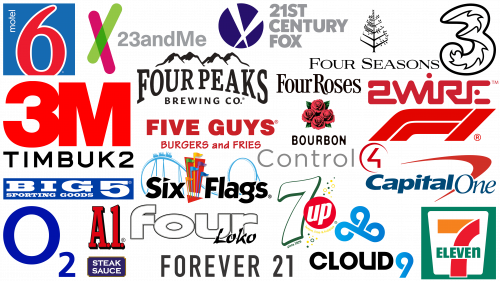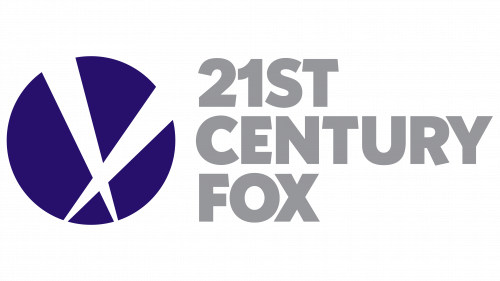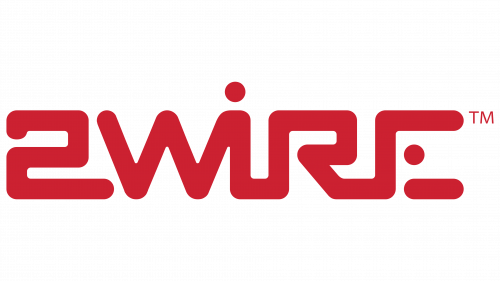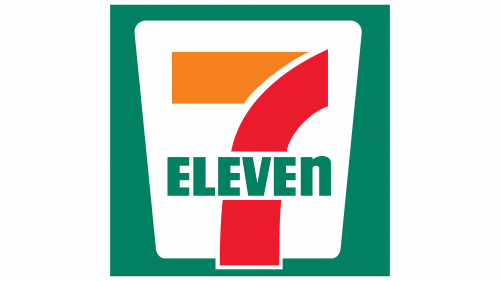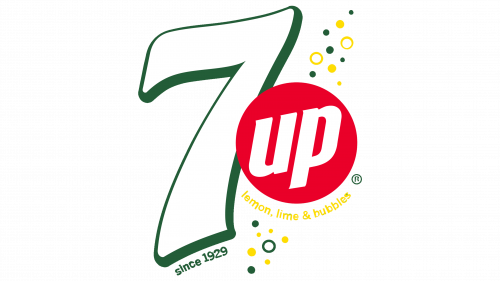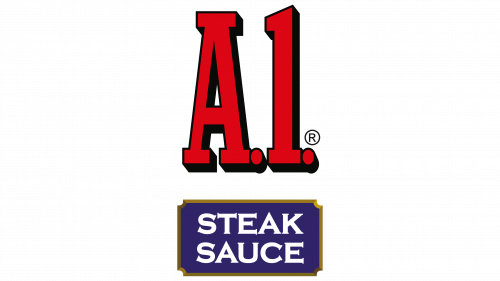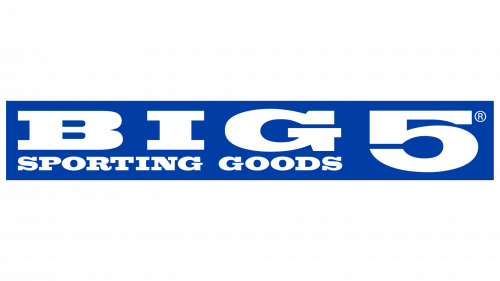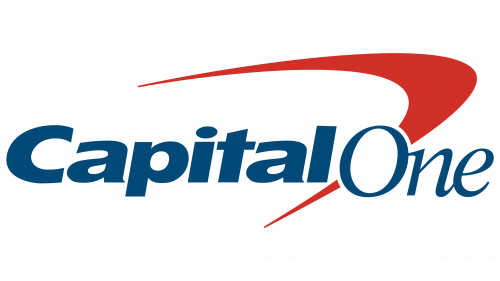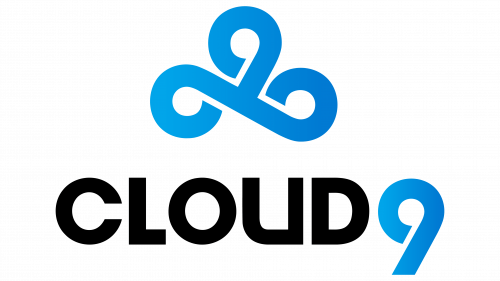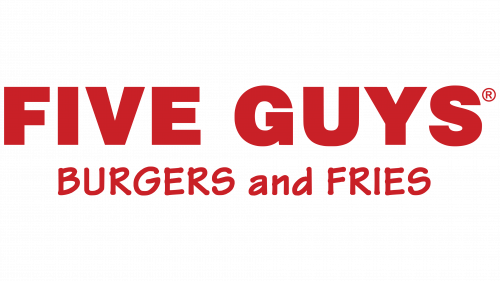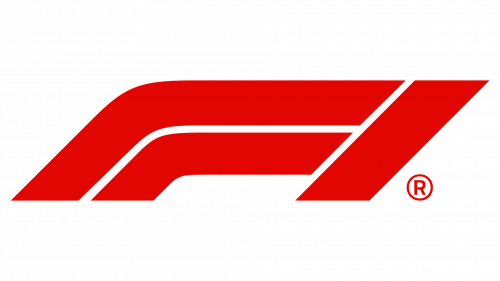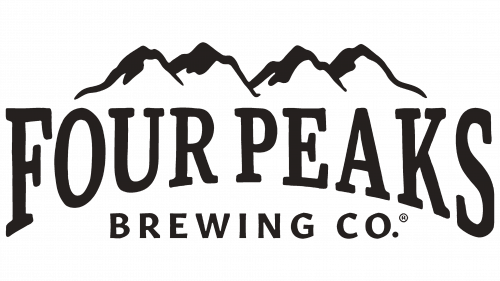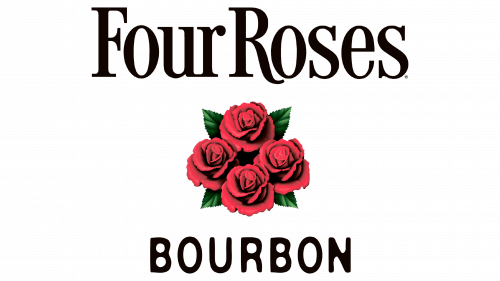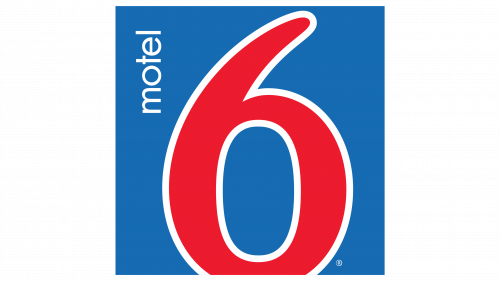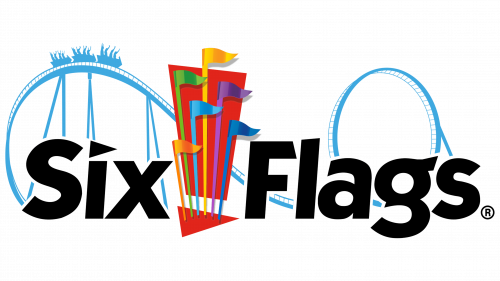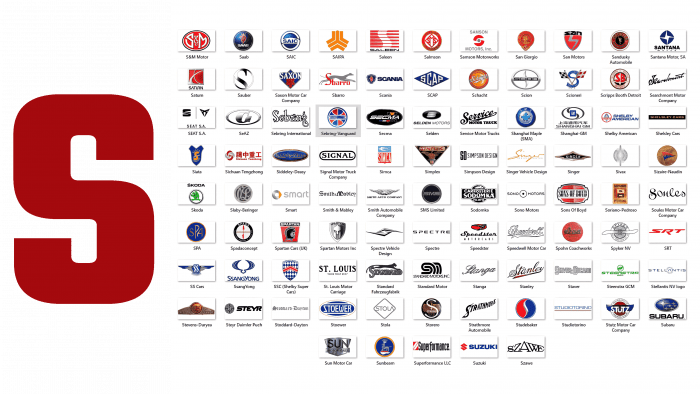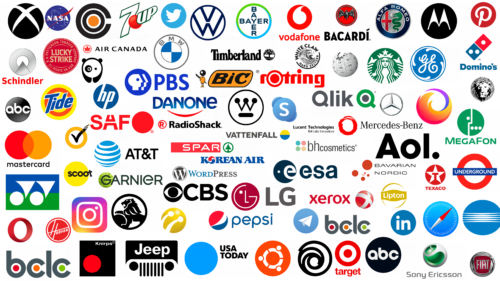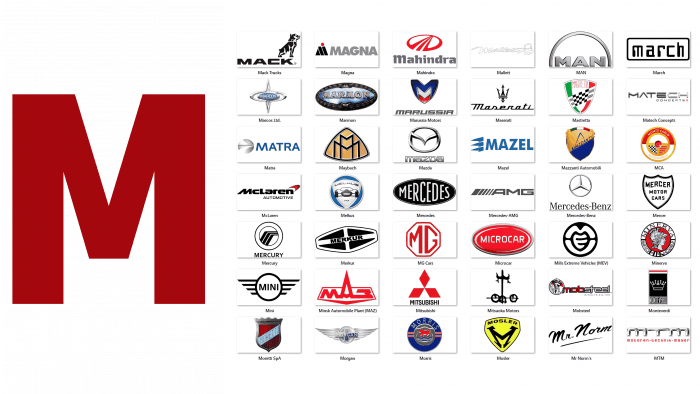In today’s busy marketplace, it is common to see brands that incorporate numbers into their names. Just as a unique word or sound can make a brand stand out, a number can give a brand name a distinctive flavor. While numeric brand names may not resonate with every business, there are many examples of companies achieving unprecedented success with their numeric monikers.
Many leading names use numbers to show the essence of the brand or the features that differentiate it from its competitors. For example, the company name 3M is a shortened version of its original name, which consists of three words beginning with the letter “M.” Coke Zero, on the other hand, emphasizes its unique offering: sugar-free cola.
Incorporating numbers into brand names can be done creatively, either as full spelling or as single digits. Given the constant emergence of a huge number of companies in today’s dynamic business environment, the trend of using numbers in brand names is becoming increasingly popular.
We will take a look at some well-known brands that use numbers in their names and try to understand the reasons behind such corporate decisions.
An introduction to brand names with numbers
In the daunting task of naming a business, entrepreneurs are faced with the need to stand out among millions of brand names from different sectors and industries. Finding a name that captures the essence of the brand and differentiates it from its competitors is difficult. Various strategies are used to achieve this, including creative or descriptive names, but the inclusion of numbers in brand names is becoming increasingly popular.
The decision to include a number in a name is not arbitrary; it is often linked to the deep psychology of numbers and their ability to evoke certain associations or feelings. Just as the psychology of color shapes consumer perception, numbers can have a profound impact on brand perception. For example, round numbers are often associated with feelings of completion and superiority. Some numbers elicit a stronger response from the general public. Research shows that the number “7” has widespread popularity and is often perceived as a favorite.
Numbers can be not only arbitrary figures but also powerful signifiers. Different numbers can be associated with certain characteristics or values. Some are considered more feminine or masculine, while others may be associated with notions of stability or strength. Thus, the numerical component of a brand name can serve as an effective means of conveying a particular meaning or quality.
Integrating numbers into brand names is not without its challenges. Practical considerations such as the ease of writing or typing the name must be taken into account. Even the most thoughtful name can be unsuccessful if it causes difficulty in these basic aspects.
Choosing a name that aligns with the core values and ideas of the brand is crucial. The selection process should include thorough research and consumer tests to gauge public reaction. The key is to find the perfect balance: a name that is unique and evocative yet simple enough to be easy to remember and type.
The use of numbers in brand names is not just a convention. Numbers are a universal tool for making a memorable impact. The growing trend of numbers in brand names is a testament to their effectiveness in an increasingly competitive marketplace.
The top brands with numbers in their name
Alphanumeric symbolism in brand names, especially using numbers, has not always been the most dominant trend. According to research from the 1990s, of the approximately 1.35 million registered brands in the U.S., only about 10,000 used numbers as an integral part of their branding strategy.
The use of numbers in brand names is not just a stylistic device; they often carry significance or represent a unique selling point. With the passage of time and increased competition in business, especially with technological advancements opening up new avenues, the trend of using numbers in brand names has increased significantly.
Today, many modern companies use numbers in their branding, becoming instantly recognizable in the market. Some of these brands have achieved such prominence that they are likely already familiar to many.
Three UK
This telecommunications company, often known as “Three” or simply “3”, has carved out a significant niche in the global market. Originating in the UK, the company has spread its influence to various corners of the globe. This telecom giant boasts an impressive customer base of around 110 million people.
The genesis of the brand dates back to 2002. The emergence of this company coincided with the growing popularity of “3G” technology – a revolutionary step in mobile communications. To match this technological wave and emphasize its pioneering position in offering the latest communication technologies, the company chose the name “Three.”
Despite the evolution of technology with the advent of 4G and 5G services, the brand has retained its original name. The Three brand remains synonymous with advanced mobile telephony services and serves as a beacon in the ever-evolving world of telecommunications.
21st Century Fox
The name “21st Century Fox” stands out in the annals of the American media industry primarily for its unique combination of numbers and letters in branding. This media conglomerate was born in 2013, and although it ceased operations in the following years, its influence and recognizability have not diminished. To this day, it remains a shining example of how brands effectively use numbers in their names. Throughout its years of operation, the company has managed a wide range of media programs and assets, contributing significantly to the industry.
A closer look at the naming strategy makes it clear that the name “21st Century Fox” was not just a quirky choice. By using the term “21st Century,” which corresponds to the 2000s, the company embodies a watershed period that many believe heralded transformational change in television and other media.
23andMe
Widely recognized for its unique numerical designation, 23andMe is a testament to modern brand naming conventions. Since its inception in 2006, this company has positioned itself as a pioneer in consumer genetic testing to provide information about ancestry and possible genetic proclivities.
Utilizing the power of genotyping technology, the company has developed comprehensive reports to explore a client’s ancestry and potential genetic predisposition. These reports not only shed light on a person’s past but also identify possible future health issues.
The intriguing name “23andMe” – is not a random sequence of numbers and letters. It appropriately alludes to the 23 pairs of chromosomes present in human cells. This clever nomenclature shows the company’s uniqueness in scientific research and its core services. By including such an important detail of human biology in its name, the company ensures that it remains focused on its mission of clarifying the genetic picture.
2Wire
Recognized for its innovative approach to communications and networking, 2Wire has uniquely incorporated the numbers that signify its core principles and values into its name. Established in 1998, the company has since become a stronghold for advanced hardware, software, and service solutions, serving primarily the business sector.
With a staff of approximately 1600 professionals, the company’s reach extends to various regions and industries. The choice of “2Wire” as the brand name is not accidental. The terminology is based on the legendary “two-wire circuit,” widely used in telecommunications. This circuit is known for its ability to provide simultaneous bi-directional data transmission.
In today’s dynamic technology environment, the name “2Wire” transcends its historical origins. It signifies the company’s continued desire for technological excellence and its position as a leader in communications.
3M
Beginning in 1902, 3M began its century-long journey, offering a variety of products and consumer goods to a global clientele. The company was originally named Minnesota Mining and Manufacturing Company, a direct reflection of its core industries.
The name was shortened to “3M” to better embrace the rapidly evolving digital age and to better represent the brand. This concise nomenclature captures the essence of the three “M’s” from the original name and positions the company as adaptable and relevant in today’s marketplace.
The rebranding exemplified the importance of evolving to keep the brand fresh and appealing to existing and potential consumers.
7-Eleven
The name 7-Eleven has become synonymous with convenience for many people in the United States. This international chain, which opened in 1927, is now a symbol of “on-the-go” retailing, offering everything from quick snacks and refreshing drinks to fuel for cars. With its wide range of products, 7-Eleven has become an integral part of many people’s lives.
In branding, where numbers are sometimes crucial, 7-Eleven is an intriguing example. The brand name is more than just a numerical coincidence. It signifies the store’s commitment to serving its customers beyond traditional opening hours. By designating the hours of operation – 7 am to 11 pm -the brand demonstrated its uniqueness to extended service. This move set them apart and redefined the standards of store operations in an era where extended hours were not the norm.
This brand choice was made not only to differentiate themselves from others but also to emphasize their commitment to customer service and accessibility. The fact that, after almost a century, 7-Eleven is still popular is a testament to the strength of the brand in effectively communicating its unique selling proposition.
7Up
Among the myriad of brands that include numbers, 7Up is an iconic representative of the American beverage industry. This lemon-lime flavored soft drink with American roots has been quenching thirst since its introduction in 1929. Even after almost a century, its appeal has not waned, and it continues to be a favorite beverage of many people around the world.
The nomenclature of “7Up” is more than just a catchy name. It is deeply intertwined with the very essence of the drink. The number “7” underlying the brand’s unique formula stands for the seven different ingredients that make up this fizzy drink. This intentional branding decision was made to emphasize the simplicity of the drink’s composition in an era when the carbonated beverage market was overwhelmed with numerous additives and synthetic ingredients. The success of this branding approach is evidenced by 7Up’s continued popularity over the decades.
A1 Steak Sauce
A1 Steak Sauce is an iconic brown sauce that has been run by Brand & Co. since its launch in 1831. With a history spanning nearly two centuries, the brand is firmly embedded in the fabric of culinary tradition.
The sauce is not limited by country of origin but is widely available in the UK, Canada, and the USA. This international availability underscores the product’s enduring popularity and its adaptability to different tastes and cuisines.
The sauce was developed in the 19th century by a man known as Henderson William Brand. This innovative creation made its way to the royal table of King George IV of England. Due to the king’s approval, the sauce was given the name “A1”, which is often used to indicate high quality. This designation not only gained recognition but also became the official name of this brand of sauce.
A1 steak sauce has carved a niche for itself historically and geographically. From its inception to royal dinner tables and now to global supermarkets, this product represents a journey that transcends time and space. At the same time, the product’s unique name remains a testament to its high quality.
Big 5 Sporting Goods
Founded in 1995, Big 5 Sporting Goods has risen to prominence in the U.S. sporting goods retail sector. Over the years, the brand has flourished and expanded geographically, with an impressive network of over 400 stores. The company’s trade area covers several American states, including Arizona, California, New Mexico, Texas, and Utah, cementing its reputation as a significant player in the sports retail industry.
The name “Big 5” has historical significance to the company and is not just a marketing ploy. The name refers to the company’s first five retail locations strategically located in California. Subsequently, the company’s name has come to serve as a landmark of sorts, recalling its origins and pointing to its long history. Over the years, the scope of the company’s activities has expanded significantly, but the essence of the name “Big Five” remains.
Capital One
Founded in 1994, Capital One quickly gained a reputation as a formidable player in the global banking sector. Specializing in a wide range of financial services – from savings accounts to bank and credit cards and loan origination – the company has spread its wings across the United States with an extensive network of more than 755 branches.
The name “Capital One” was chosen not just to recognize its financial performance but to convey a sense of unrivaled excellence and leadership in the banking industry. The word “One” is commonly associated with the concepts of paramountcy and distinction. By utilizing this word, the company intends to position itself as the paramount choice for consumers seeking banking and credit card solutions.
A unique approach to digital naming sets Capital One apart in branding. Rather than simply using a number, the company expressed the word “One” in its entirety. This nuanced decision underscores the brand’s desire to be unparalleled in the financial sector.
Cloud9
Cloud9 hails from California and was officially incorporated in 2016, becoming a notable contender in the burgeoning cybersports sector. The organization initially announced itself as a top-tier League of Legends team and has since expanded its presence in the competitive gaming arena.
The name Cloud9 is not just an arbitrary set of letters and numbers. It refers to the widespread sense of joy and triumph expressed by the phrase “on cloud nine.” By adopting such a name, the organization subtly conveys the elation that its players feel during decisive victories and the emotional roller coaster that spectators and fans experience when watching these intense matches.
The decision to include a numeral in the name conveys the essence of this high level of excitement and satisfaction, making it understandable to both players and a wide range of cybersports fans.
Control4
Control4, which has become a leader in automation and networking technology, holds a special place among technology brands that combine the alphabet with numbers. Targeting both commercial organizations and home consumers, Control4 has since established a reputation as a trendsetter in its niche.
The year 2003 marked the beginning of a new era for homeowners and businesses alike when Control4 introduced its offerings to the world. They introduced an innovative approach that allowed users to incorporate advanced features into their facilities. From ambient temperature optimization to advanced lighting control, state-of-the-art multimedia capabilities, and robust security protocols, Control4 sought to redefine the way people experience their living and working environments.
One of the intriguing aspects of this remarkable venture is the mystery shrouding its name. While the word “Control4” has become synonymous with innovation in the tech world, the exact source of inspiration and rationale behind this nomenclature remains undisclosed. The technology community, with a penchant for unraveling mysteries, has put forth its own speculations. Many speculate that the number “4” indicates a quartet of core features or solutions that were in the company’s offerings during its formative stages. Without an official statement, this version remains part of the intriguing speculation surrounding the brand.
Five Guys
Known worldwide as Five Guys Burgers and Fries, this American-origin fast food restaurant chain has become a significant player in the global food service industry. Founded in 1986, today it has an impressive network of more than 1,700 locations spread across various countries.
The company was born out of the entrepreneurial spirit of Janie and Jerry Murrell and their four sons. The brand name “Five Guys” is a tribute to the first men in the Murrell family: Jerry and his four sons. This simple yet affectionate nomenclature emphasizes the company’s family roots and is a testament to its humble origins.
After the company was established, the Murrell family expanded to include a fifth son, who has been an integral part of the business ever since. The name originally referred to the five male members of the family, but as the company evolved and adapted, its meaning changed. The family ethic remains central to the brand’s uniqueness, even as it continues to go global.
Forever 21
Forever 21 is a beacon in the world of fast fashion. Originating as “Fashion 21,” this international retailer has quickly risen to the top of the retail industry, emphasizing stylish yet affordable clothing. Its presence is felt in the U.S. and beyond.
Numerical branding, as in the case of Forever 21, carries a powerful message. It is more than just a name; it is the embodiment of aspiration. The number “21” is associated by many with blossoming – a period of maturity and freedom. It symbolizes a time when responsibilities arise, but the essence of youth is still intact. Company founders Do Won Chang and Jin Suk Chang consider this age to be the pinnacle of desirability, combining the best of both worlds – the rights of adulthood and the recklessness of youth.
Embodying this sentiment in the brand’s signature style, Forever 21 beckons its customers with a promise: to immortalize the spirit of youth and fashion. It’s a statement that clothes are not just about dressing up but also about the feelings associated with a certain age. The brand’s message, subtly woven into its name, conveys an invitation to re-experience and embrace the fearless energy that characterizes twenty-somethings. This choice of name has defined the brand’s uniqueness and cemented its position as a leading provider of fashionable youth apparel.
Formula One
Recognized worldwide as the pinnacle of motor racing, Formula One has cemented its reputation as a leading racing platform. Originating with the aim of creating a competitive arena for elite sports car drivers, the initiative was aimed at identifying and rewarding the best talent in racing.
Since then, the Formula One World Championship has become a global sensation, captivating audiences around the world with its thrilling races and unrivaled sportsmanship. This phenomenon, which spans all continents, has a huge number of fans who eagerly follow every corner, every lap, and every finish. The terminology of Formula One symbolizes its place of honor in motor racing. The use of the term “one” speaks of superiority, excellence, and leadership.
Four Loko
Founded in 2005, Four Loko has become one of the leading brands in the alcoholic beverage sector, offering a variety of flavors. The brand has gained considerable popularity in America, even though it has gone through several controversies and issues over time.
The brand’s characteristic name, Four Loko, reflects its composition. The word “four” indicates the main ingredients included in each drink: caffeine, taurine, malt alcohol, and guarana. The term “Loko” is borrowed from the Spanish lexicon and is a playful word meaning “crazy.”
As the brand matured, the company constantly strived to find a balance between a flavorful experience for its customers and concern for health and safety. This duality has made Four Loko’s journey a point of interest for industry analysts and consumers alike. With its bold personality and rich past, the brand remains a prominent player in the beverage sector, showcasing both the challenges and triumphs inherent in the industry.
Four Peaks
Founded in 1996, Four Peaks Brewing Co. is a beacon in the world of brewing in the heart of Arizona. This renowned brewery and restaurant, now under the AB InBev brand, boasts a diverse range of beverages. Among them, the flagship ale Kilt Lifter, which is very popular and favored by consumers, occupies a significant place.
Four Peaks Brewing Co. is constantly exploring new flavors by introducing a range of seasonal ales, catering to the ever-evolving tastes of its customers.
The intriguing name “Four Peaks” is more than just a catchy name; it resonates deeply with the company’s roots. It refers to the quartet of peaks that adorn the Mazatzal Mountains located within the Tonto National Forest. By choosing this name, the company shows its proud American pedigree and uniqueness in the use of pure, natural ingredients in the brewing process.
Four Roses
Founded in 1888, Four Roses has carved out a significant niche in the American spirits industry, especially in the Kentucky bourbon whiskey market. The brand has remained relevant for generations, offering consumers a variety of options.
The brand’s name, Four Roses, has a sentimental meaning and traces its origins to a romantic gesture. According to historical accounts, the future wife of the company’s founder wore a corsage of four red roses to a dance, signifying her positive response to his love. This romantic story informed the whisky’s branding, giving it emotional significance.
Four Roses has adapted and expanded its offerings to meet changing consumer preferences. While maintaining a close connection to its traditional Kentucky roots, the company has been able to incorporate ideas and release new variants of its signature bourbon whiskey.
With its unique name, interesting history, and continued relevance, Four Roses remains a point of interest for bourbon aficionados and everyday consumers alike. The brand’s ability to adapt while remaining true to its core values has been key to retaining a loyal customer base and ensuring long-term viability in an ever-evolving marketplace.
Four Seasons
Internationally renowned Four Seasons Hotels Limited is a beacon of luxury in the hospitality sector, with its roots firmly rooted in Canada. Since its inception in 1961, the brand has more than 100 exquisite resorts and hotels across continents.
The genesis of this esteemed brand can be traced back to the vision of Canadian entrepreneur Isador Sharp. His dream was to offer luxurious accommodations and provide consistent and superior guest service throughout the calendar year. It was this principle of year-round impeccable service that led to the choice of the name “Four Seasons.” The brand’s nomenclature symbolizes the cyclical nature of the seasons on Earth, emphasizing the promise that no matter the season, guests will be provided with unparalleled service and comfort.
This thoughtful choice of name has greatly contributed to the brand’s image, showing its reliability and consistency. Four Seasons has built a lasting brand image that has become synonymous with trust, reliability, and world-class hospitality. Regardless of the season, the brand resonates deeply with customers, ensuring its position as a leader in the luxury hospitality sector.
O2
O2, a UK-based telecommunications company, debuted in 2002 and has since firmly established its name in the industry. Now under the umbrella of Virgin Media, O2 not only operates itself but also manages sub-brands, notably GiffGaff and Tesco Mobile.
The terminology of ‘O2’ provides an intriguing insight into the brand’s pedigree. Its origins stem from the brand’s exit from the BT Group in 2002, resulting in the formation of the mmO2 holding company. This transition was the basis for the introduction of the mononym “O2”, heralding the beginning of a new era in the development of the company.
In addition to its historical significance, the “O2” designation is also a parallel to the molecular structure of oxygen. By doing so, the brand emphasizes its indispensability and suggests that its services are as essential as air to sustain life. Thus, in the field of telecommunications, O2 creates an image of not just a service provider but also positions itself as an indispensable attribute of modern life.
Motel 6
Motel 6 is an iconic name in the hospitality industry in the United States and Canada. Originating in 1962, the brand has since expanded to “Studio 6,” a brand designed to provide longer stays for customers across the United States.
The name “Motel 6” encapsulates the brand’s founding principles. The origin of the name can be traced back to the company’s inception when two construction contractors had the idea to open a motel business. Their strategy was simple: offer rooms at $6 per night. This ensured affordable lodging for travelers.
The Motel 6 brand has evolved, adapting to changing market demands while maintaining its ethos of value-oriented service provided.
Six Flags
Six Flags is a well-known amusement park manufacturer, especially in the United States. Headquartered in Texas, the company boasts a variety of facilities located not only in the United States but also in Mexico and Canada. Impressively, the company has the largest number of theme parks and water parks than any other corporation specializing in amusement parks.
The name “Six Flags,” which appeared in 1961, was not chosen by chance. It has deep historical roots, being inspired by the six different zones of the park. Each of these zones is a tribute to a different nation. Historically, the flags of these nations have flown over Texas, signifying their influence and presence at different times. The park’s name is a constant reminder of the diversity and intricacy of Texas’ historical heritage, even as park visitors enjoy the thrills and entertainment. Such a name combines entertainment and education, offering guests a rich experience that goes beyond mere amusement.
Timbuk2
Timbuk2 was founded in 1989 in San Francisco as a manufacturer of durable and versatile bags to meet the demanding needs of travelers and adventurers. The company was founded on the desire to create bag models that would meet the needs of people going on unpredictable journeys, both cross-country and through bustling urban centers.
Founder Rob Honeycutt was fascinated by the American rock band “Timbuk3,” but the name also subtly captures the essence of Timbuktu, a famous city in Mali. This UNESCO World Heritage city symbolizes the lure of faraway exotic places, echoing the company’s idea of encouraging adventure.
Timbuk2 products, characterized by high-quality craftsmanship, are not just accessories but trusted companions for wanderers, explorers, and everyday commuters. This makes Timbuk2 not just a brand but part of the individual stories that unfold on the countless paths traveled by the company’s customers around the world.
Is a brand name with numbers a good idea?
Using numbers in brand or product names can be an effective strategy if approached correctly. Studies have shown that numbers have universal appeal. Their language, which is concise in nature and universally understood, allows businesses to engage with a wide audience. Numbers can evoke certain psychological responses, which makes them even more impactful.
Many companies incorporate numbers into their brand names, but the trend of using them in product names is even more pronounced. For example, well-known products such as Chanel No 5 and Boeing 747 have used names based on numbers to appeal to certain market segments. Such alphanumeric combinations, backed by strong marketing strategies, have historically resonated with target consumers.
There are challenges associated with each benefit. In the case of number-centric branding, there is potential confusion. For example, when searching for a brand or product online, consumers may be faced with the dilemma of whether to dial the number in verbal form or use its digital representation. This ambiguity can prevent a brand from being memorized or searched for online, which can lead to missed opportunities for companies.
The cultural nuances associated with certain numbers do not always translate well across borders. Therefore, it’s important to know the regional specifics of a number.
With all these nuances in mind, companies considering using numbers in the name of their brand or product should approach this decision in a measured manner. Engaging branding experts or conducting thorough market research can help navigate the complexities of alphanumeric branding. The goal is to ensure that the chosen name matches the essence of the brand while maximizing market appeal.
